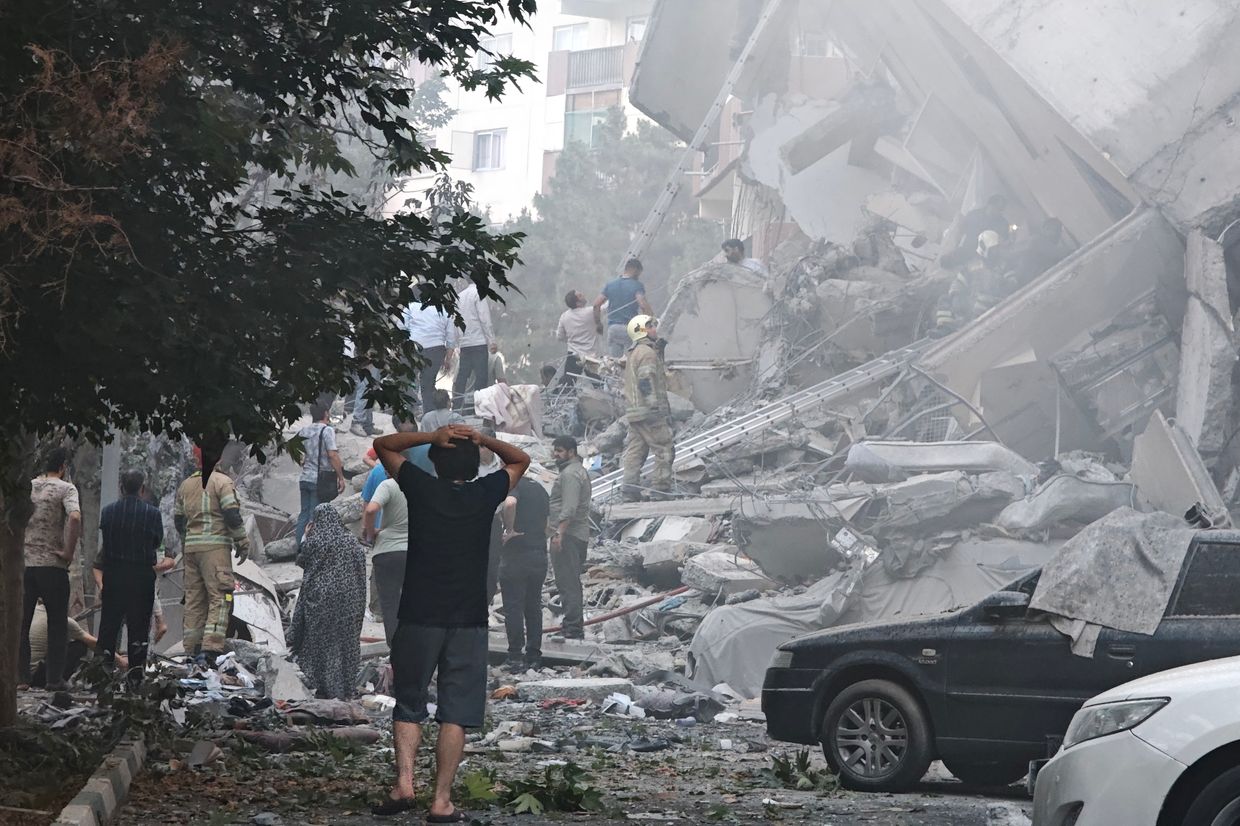Trump Administration Revokes Biden Ban on Drilling and Mining in Alaska Wilderness

© Erin Schaff/The New York Times


© Erin Schaff/The New York Times


© Alexander Manzyuk/Reuters
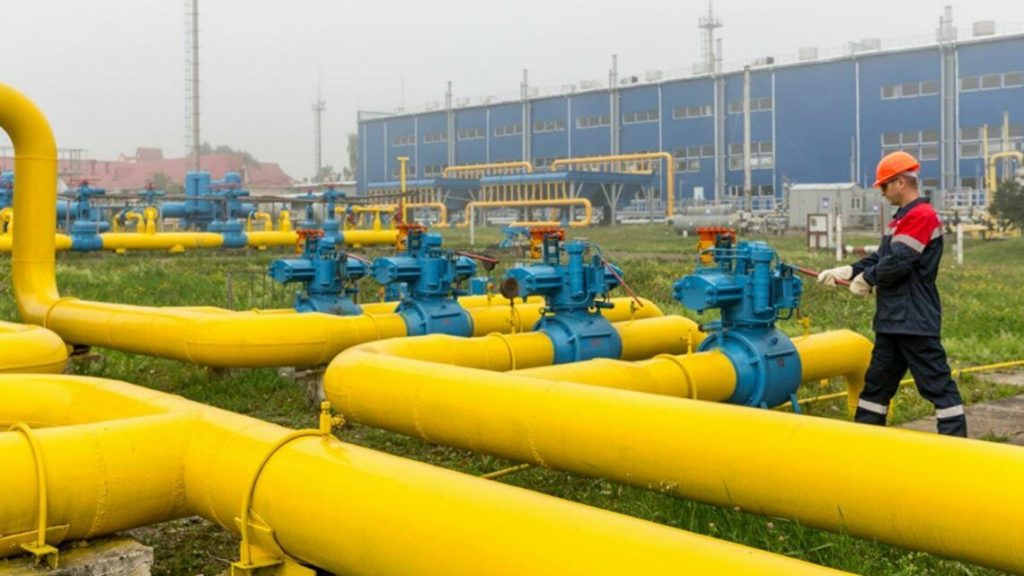

Ukraine's state energy company Naftogaz has signed a memorandum with Greek firm Atlantic-see LNG Trade on regular deliveries of American liquefied natural gas through Greek terminals, Naftogaz Group head Serhiy Koretskyi announced.
"We are talking about future regular supplies of American gas to Ukraine through Greek gas terminals and the Vertical Corridor," Koretskyi explained.
The long-term partnership covers the period until 2050. The memorandum was signed at the P-TEC forum in the presence of Ukrainian Energy Minister Svitlana Grynchuk, Greek Environment and Energy Minister Stavros Papastavrou, US Energy Secretary Chris Wright, US Interior Secretary Doug Burgum, US Ambassador to Greece Kimberly Guilfoyle, and US Chargé d'Affaires in Ukraine Julie C. Davis.
According to Koretskyi, the agreement will ensure stable LNG supplies for Ukraine and integrate the country's infrastructure into logistics routes for LNG to Europe. The memorandum also creates a sustainable system for supplying and storing American gas.
The strategic partnership aims to diversify routes for American LNG deliveries to Ukraine and Europe through phased implementation of new projects.
In October, President Volodymyr Zelenskyy planned to request gas and air defense systems from US President Donald Trump during their meeting on 17 October.


© Jamie Kelter Davis for The New York Times


© J. Emilio Flores for The New York Times


© Yonhap/EPA, via Shutterstock


Kyiv refuses to yield. President Volodymyr Zelenskyy has announced the creation of an Energy Coalition to protect Ukraine’s energy sector during Russia’s massive attacks in the cold season, UkrInform reports.
Russian President Vladimir Putin has moved from a strategy of conquering Ukraine to a strategy of its destruction. In October, Russian attacks have already destroyed about 60% of Ukraine's gas production capacity and caused mass blackouts.
The first meeting will take place in the coming days via video conference.
The coalition’s goal is to enhance energy security, secure funding for electricity imports and equipment, and respond to Russia’s attacks, which have damaged the water supply, gas networks, and logistics.
Zelenskyy emphasized that Ukraine is already integrated with the European energy grid, allowing electricity imports when infrastructure is damaged.
The coalition will focus on mobilizing additional funding, coordinating efforts with other countries, and strengthening energy security for Ukrainians.
Financial and technological support from partners is key to maintaining the sector’s resilience, ensuring gas, electricity, and energy equipment for the population, and countering Russia’s destructive attacks while supporting the economy.
Zelensky announced the new coalition during a meeting with Dutch Foreign Minister Wopke Hoekstra, who visited Kyiv on 28 October. Hoekstra noted that Russia terrorizes Ukrainians daily, leaving innocent people to suffer from the attacks.
The Netherlands has provided Ukraine with over €13 billion in support during the war, including €4 billion this year for arms and defense industry needs.
Hoekstra confirmed that the Netherlands is providing €25 million for energy equipment and gas to help restore supplies after attacks that left over 20.5 million families without gas.
He also confirmed plans to use frozen Russian assets to compensate for war damages.


© Adrian Wyld/The Canadian Press, via Associated Press


More than 20 countries backing Ukraine have pledged to remove Russian oil and gas from global markets, in what UK Prime Minister Keir Starmer described as an effort to “choke off funding for Russia’s war machine,” as reported by the BBC.
The announcement came after a “Coalition of the Willing” summit in London, attended by Ukrainian President Volodymyr Zelenskyy. The pledge builds on a new wave of Western sanctions: the UK and US recently targeted Russia’s two largest oil companies, Rosneft and Lukoil, while the EU imposed restrictions on Moscow’s liquefied natural gas exports.
Zelenskyy welcomed the tightening of sanctions, saying that “pressure” was the only way to stop the war, now entering its fourth winter. He warned that Russia “wants to make the winter cold a tool of torment” as it continues near-daily attacks on Ukraine’s energy system.
He said in his evening address that all coalition members agreed to keep tightening pressure “on Russian oil, oil companies, terminals, the tanker fleet, and the aggressor’s infrastructure.” Some decisions, he added, “will help us significantly,” but details would remain undisclosed “to make it harder for Putin.”
Starmer said the allies had agreed on a “clear plan for the rest of the year” to sustain Ukraine’s defense, including efforts to target Russia’s sovereign assets and “unlock billions” for Kyiv, though no details were given.
EU leaders separately endorsed plans to cover Ukraine’s financial needs for the next two years but stopped short of approving the use of frozen Russian assets worth €140 billion.
The London gathering also discussed support for Ukraine’s energy grid and air defenses. Protecting Ukraine’s critical infrastructure remains an urgent issue as Russia intensifies strikes aimed at plunging cities into darkness during the coming winter.
The London announcement follows coordinated Western sanctions action on 22-23 October, when the US designated Russia's two largest oil companies, Rosneft and Lukoil, along with more than 30 subsidiaries, freezing their US assets and prohibiting American transactions with them.
The EU simultaneously approved its 19th sanctions package, banning Russian LNG imports and targeting additional shadow fleet vessels.
Chinese state oil firms have suspended seaborne Russian oil purchases following the US sanctions, while Indian refiners prepare to slash imports. Together, China and India absorbed 85% of Russia's crude exports after Western sanctions shifted Russian oil trade from Europe to Asia.
The coordinated pressure comes as Rosneft's profits collapsed 68% in the first half of 2025, with free cash flow plunging 75% - the clearest sign yet that sanctions combined with Ukrainian strikes on refineries are systematically dismantling the Kremlin's war funding.
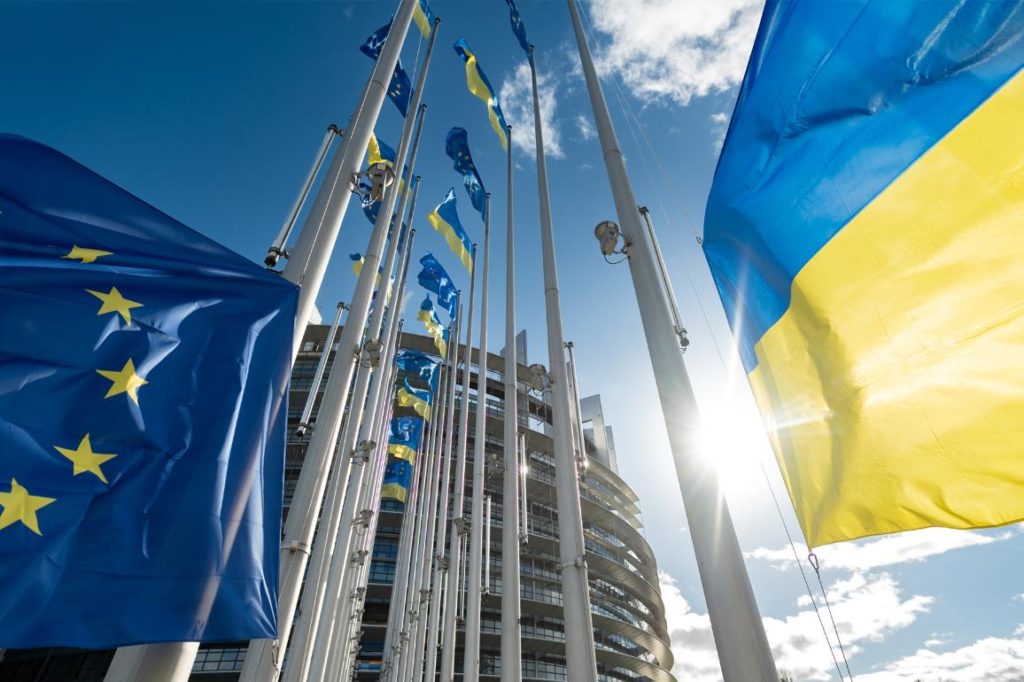

The European Union approved its 19th sanctions package against Russia, including a ban on Russian liquefied natural gas imports, Reuters reports. Slovakia was the final member state to lift its objection after securing assurances on energy prices and climate policy.
Slovakia's Prime Minister Fico held up the package for days. He demanded commitments from the European Commission on high energy prices. He also wanted climate targets aligned with carmaker and heavy industry needs. A Slovak diplomat told Reuters the country's demands were met. New clauses were added to the final communiqué for the EU leaders summit today, on 23 October.
The Danish rotating presidency of the EU announced the breakthrough on 22 October. The presidency launched a written approval procedure. If no member state objects, the package will be adopted by 8 a.m. today.
The LNG ban will take effect in two stages. Short-term contracts will end after six months. Long-term contracts will continue until 1 January 2027. The full ban arrives a year earlier than the Commission's proposed roadmap. The roadmap aimed to end the bloc's reliance on Russian fossil fuels.
The new package lists 117 more vessels from Moscow's shadow fleet. Most are tankers used to evade sanctions. This brings the total number of listed vessels to 558. The package also adds new travel restrictions on Russian diplomats. It targets banks in Kazakhstan and Belarus, the presidency said.
EU diplomatic sources told Reuters that four entities linked to China's oil industry will also be listed, including two oil refineries, a trading company, and an entity helping circumvent sanctions.
Yesterday, the US has also imposed the first batch of new Russian sanctions in months.
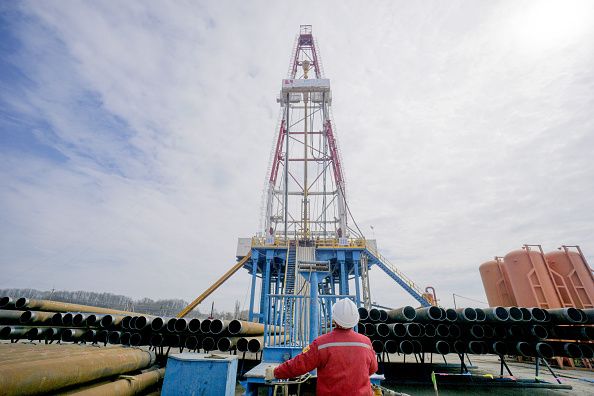

Ukraine's state energy giant Naftogaz has commissioned a new exploration well producing 383,000 cubic meters of natural gas per day through its subsidiary Ukrgazvydobuvannya, CEO Sergii Koretskyi announced on July 8.
The 5.7-kilometer deviated well was drilled and commissioned six weeks ahead of schedule as Ukraine works to boost domestic production amid Russian attacks on its energy infrastructure, including gas storage facilities in western Ukraine.
"This is a significant achievement, given the country's need for gas," Koretskyi said.
Naftogaz produces the lion's share of Ukrainian gas, but its production facilities were severely damaged in a series of Russian missile strikes earlier this year, reducing production by as much as 40%.
According to data from Naftogaz, Ukrgazvydobuvannya lost about 50% of its production due to shelling.
Ukrgazvydobuvannya managed to increase commercial gas production to 13.9 billion cubic meters (bcm) in 2024 compared to 13.2 bcm in 2023, commissioning 83 new wells despite wartime conditions.
Ukraine previously produced 52 million cubic meters daily before Russia's full-scale invasion, but required 110-140 million cubic meters during winter months, covering the shortfall from underground storage.
Russian strikes have repeatedly targeted Ukraine's gas infrastructure, including a February 11 combined missile and drone attack that damaged Naftogaz production facilities in Poltava Oblast.
To secure winter supplies, Naftogaz has signed four contracts with Poland's Orlen for delivery of 440 million cubic meters of U.S. liquefied natural gas. The latest agreement, announced July 2, covers an additional 140 million cubic meters.
According to Bloomberg estimates, in 2025 Ukraine may import a record 5 billion cubic meters of gas from Europe.
Ukraine's gas storage situation has also deteriorated significantly, with underground reserves falling to 6.02 bcm as of May 11 — the lowest level in at least 11 years.
The facilities are operating at just 19.4% capacity, with 2.79 billion cubic meters less gas available than the previous year.
 The Kyiv IndependentDominic Culverwell
The Kyiv IndependentDominic Culverwell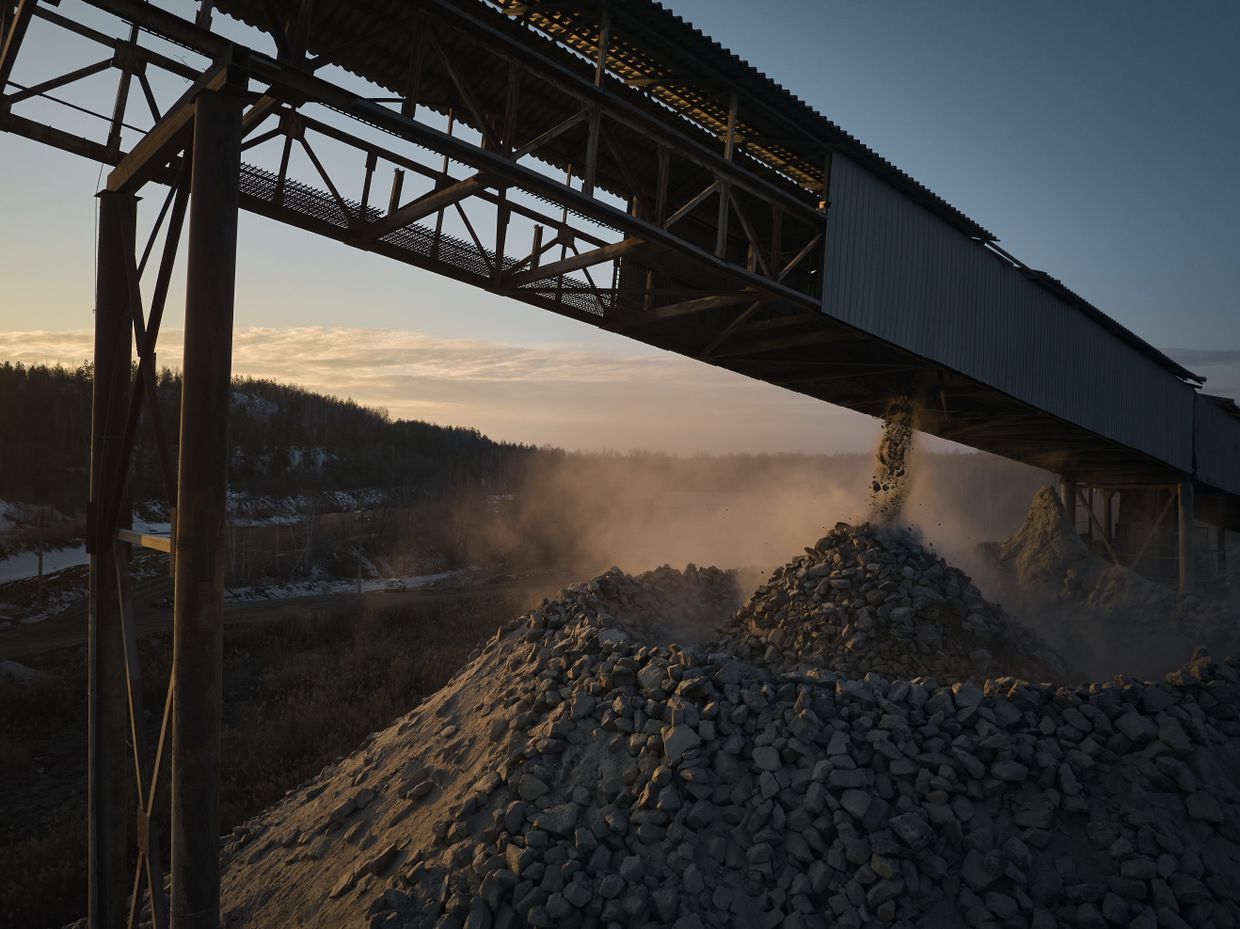
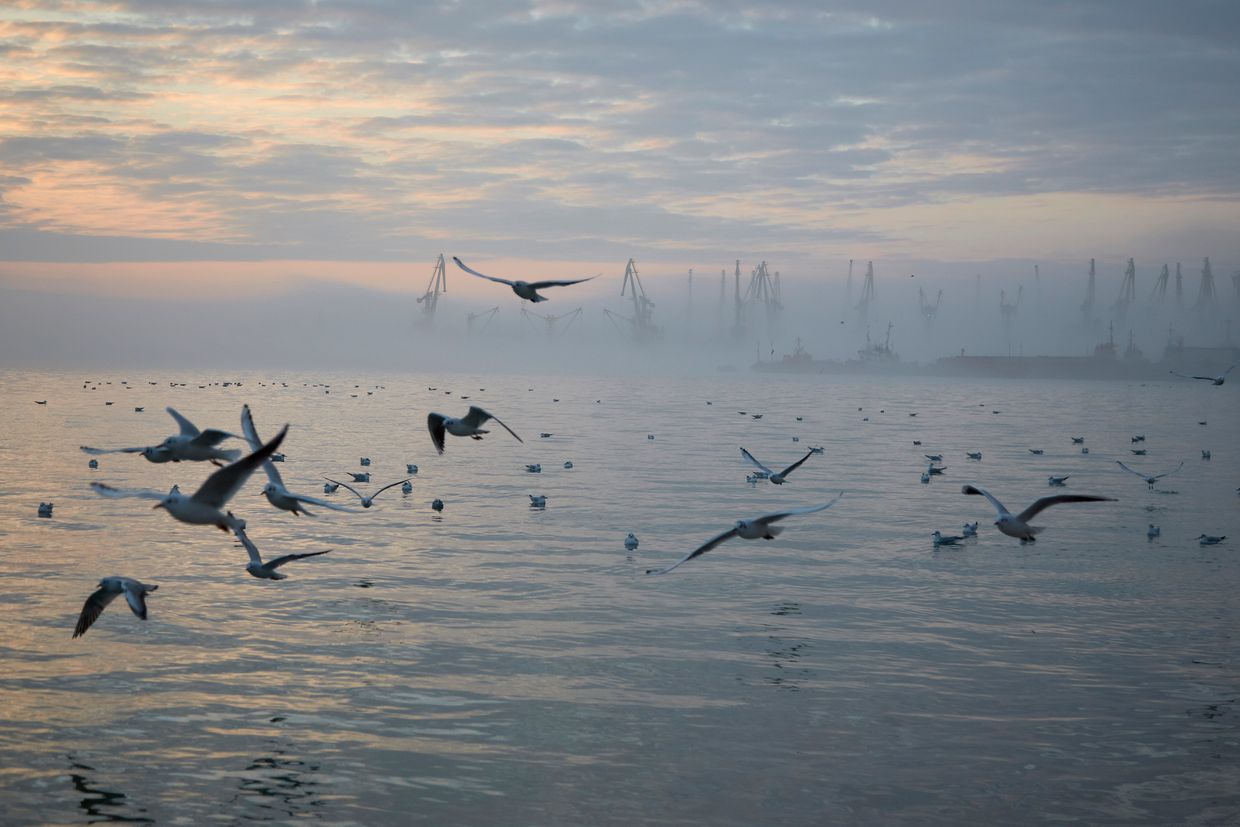

Russian authorities are planning to begin gas extraction from the Sea of Azov, citing Soviet-era geological data and identifying 22 potential offshore fields, including several located near the occupied Ukrainian city of Berdiansk, Ukrainian officials told Suspilne on July 1.
According to the Berdiansk Municipal Military Administration, Russia's Federal Subsoil Resources Agency (Rosnedra) has announced plans to explore and possibly develop gas fields such as the Morske, Pivnichno-Kazantypske, and Skhidno-Kazantypske deposits.
"(Russia) has declared commercial reserves of gas in the Sea of Azov, referring to Soviet archives listing 22 oil and gas structures," Ksenia Kleshchenko, acting head of communications for the Berdiansk administration, told Suspilne.
"These include the Morske field, discovered in 1977 (and still under conservation). It is necessary to conduct further exploration and pilot operation."
Kleshchenko noted that the Pivnichno-Kazantypske and Skhidno-Kazantypske fields were discovered in the late 1990s and early 2000s during Ukraine's independence, but have not been developed. Ukrainian company Chornomornaftogaz had conducted surveys at the Pivnichno-Kazantypske and Strilkove sites before Russia annexed Crimea in 2014 and seized Ukrainian offshore assets.
Ukrainian authorities say the Kremlin's interest in mineral resources may have partially motivated the occupation of southern Zaporizhzhia Oblast, including Berdiansk.
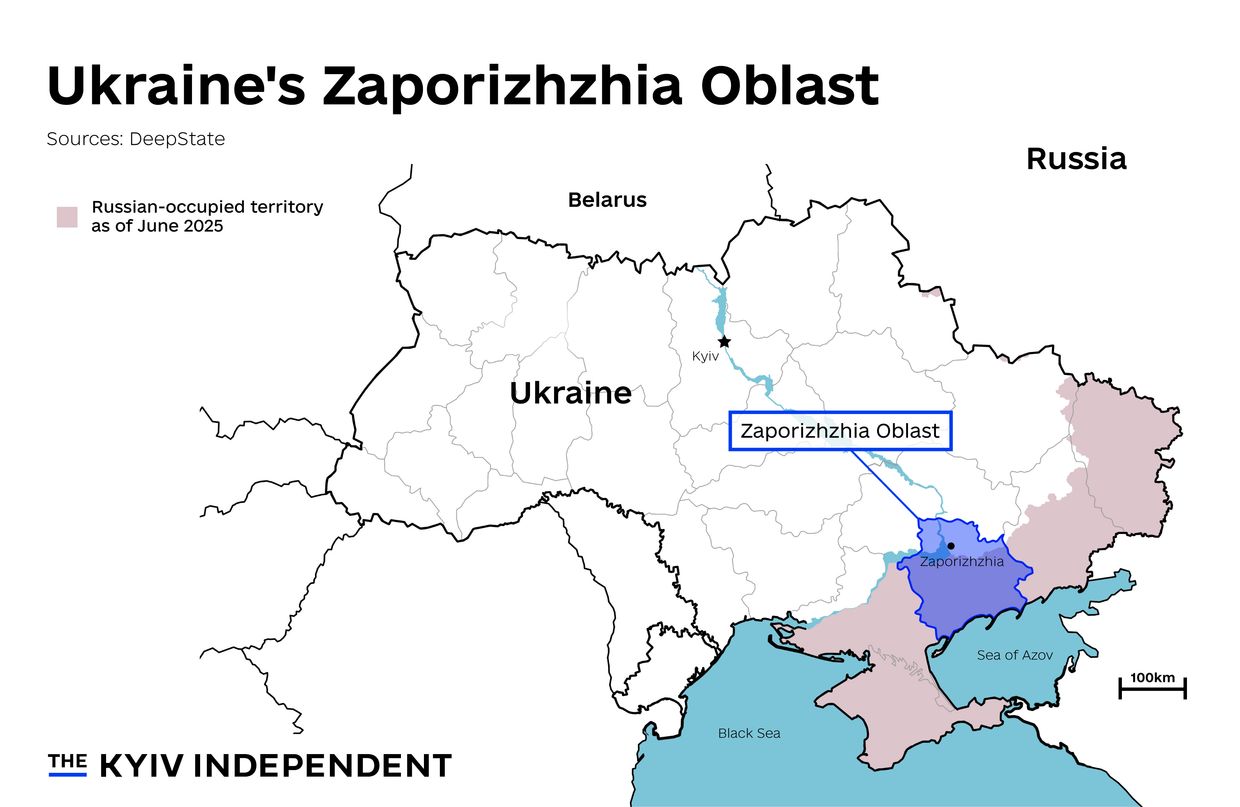
"All of the (Russia's) 'plans' are focused on enriching themselves and the Russian Federation, but not on the welfare of the citizens of the occupied territories," the Berdiansk administration said in a statement. "While residents of Berdiansk face constant water and electricity outages, (Russian authorities) are laying grand schemes to exploit the region’s resources."
The administration also warned of potential environmental consequences. Due to the shallow average depth of the Sea of Azov, around 14 meters (about 46 feet), any extraction could cause serious ecological damage. The exploratory work is reportedly planned for 2026–2030.
Russia's interest in resource-rich territories extends beyond the Sea of Azov. In June, Russian forces took control of a major lithium deposit near the village of Shevchenko in Donetsk Oblast, one of Ukraine's most valuable sites for the mineral used in electric vehicle batteries.
Ukraine has now lost two of its four known lithium deposits to Russian occupation, including the Kruta Balka deposit in Zaporizhzhia. According to the Kyiv School of Economics, Ukraine holds about one-third of the European Union's lithium reserves.
 The Kyiv IndependentDominic Culverwell
The Kyiv IndependentDominic Culverwell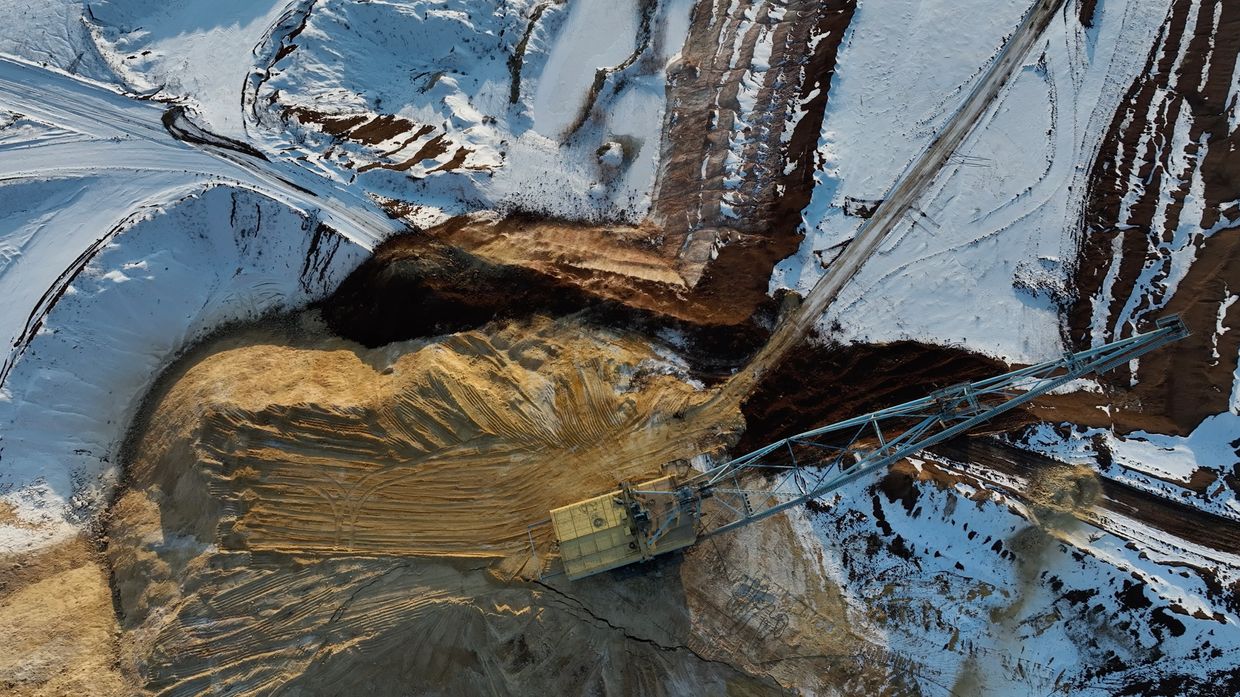
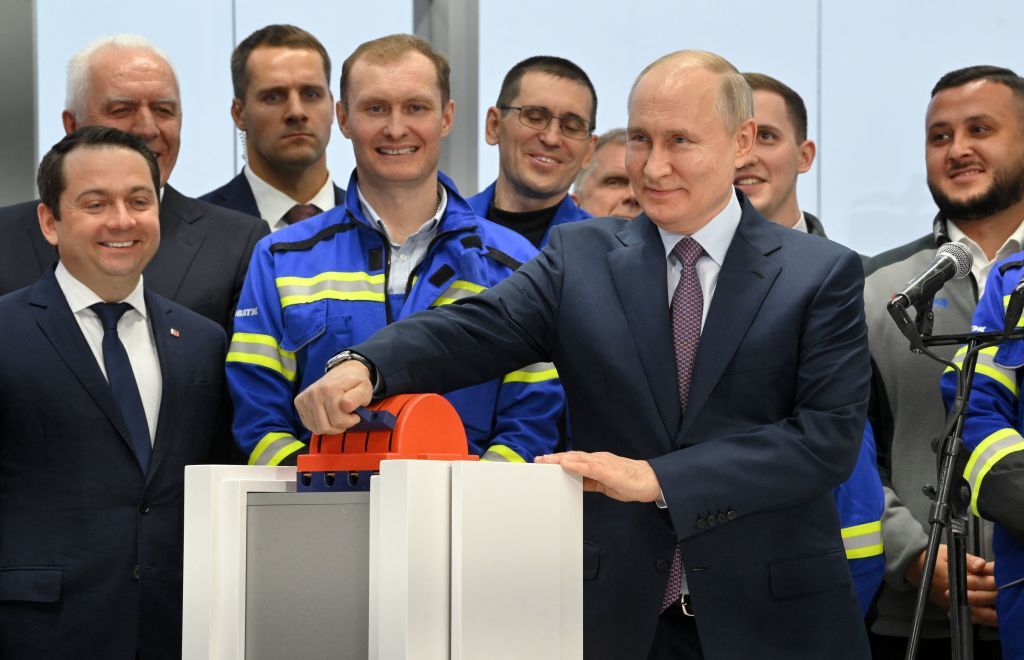

Russia is making another attempt to expand its exports of liquefied natural gas (LNG) after U.S. sanctions disrupted production at its flagship Arctic LNG 2 plant, Bloomberg reported on June 28.
Arctic LNG 2, owned by the Russian company Novatek, was envisaged as Russia's largest LNG plant and aimed to produce almost 20 million metric tons of LNG per year. The U.S. State Department targeted the Arctic LNG 2 project with sanctions in 2024.
An LNG vessel has reportedly docked at the Arctic LNG 2 facility for the first time since October, according to ship-tracking data and satellite images analyzed by Bloomberg. Data suggests that at least 13 vessels of Russia's "shadow fleet" have been assembled to potentially serve Arctic LNG 2.
These include four ice-class vessels, including the one currently docked at Arctic LNG 2. Three others are idling in the Barents Sea, along with three traditional LNG vessels. Two more vessels are being repaired in China and another two are idled in the Gulf of Finland. One ship is located near a floating storage facility in Russia's Far East.
While pipeline shipments of Russian gas to Europe have declined sharply since the full-scale invasion of Ukraine, Russia's shadow fleet — a group of aging oil tankers used to circumvent global sanctions — continues to grow.
Moscow now has more vessels at its disposal than it did last year, according to Malte Humpert, founder of the Arctic Institute think tank.
"If (Russia) can find buyers, this small fleet should be sufficient to lift cargoes," Humpert told Bloomberg.
Finding buyers may present a difficulty, due to wariness about sanctions violations. Former U.S. President Joe Biden sanctioned ships and companies connected with exports from Arctic LNG 2 in 2024, thought it is not yet clear if U.S. President Donald Trump will enforce sanctions as strictly.
Representatives of Arctic LNG 2 have continued to search for buyers in China and India, but have not yet made any sales, traders familiar with the matter told Bloomberg.
Arctic LNG 2 cut production from its gas fields to almost zero in November 2024, after halting liquefaction the previous month due to Western sanctions. The U.S. sanctioned two vessels and two entities connected to Arctic LNG 2 in September 2024, after previously targeting the project in a sweeping round of sanctions late August.
The August sanctions likely forced Novatek to scale back its operations at the facility. Novatek itself was sanctioned after the outbreak of the full-scale war in 2022.
 The Kyiv IndependentDmytro Basmat
The Kyiv IndependentDmytro Basmat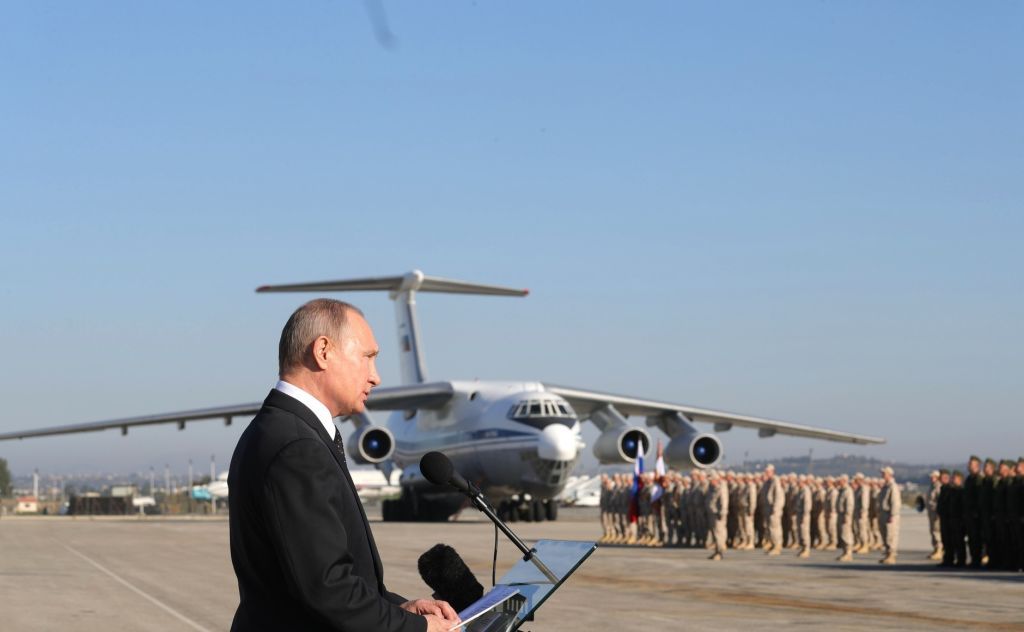
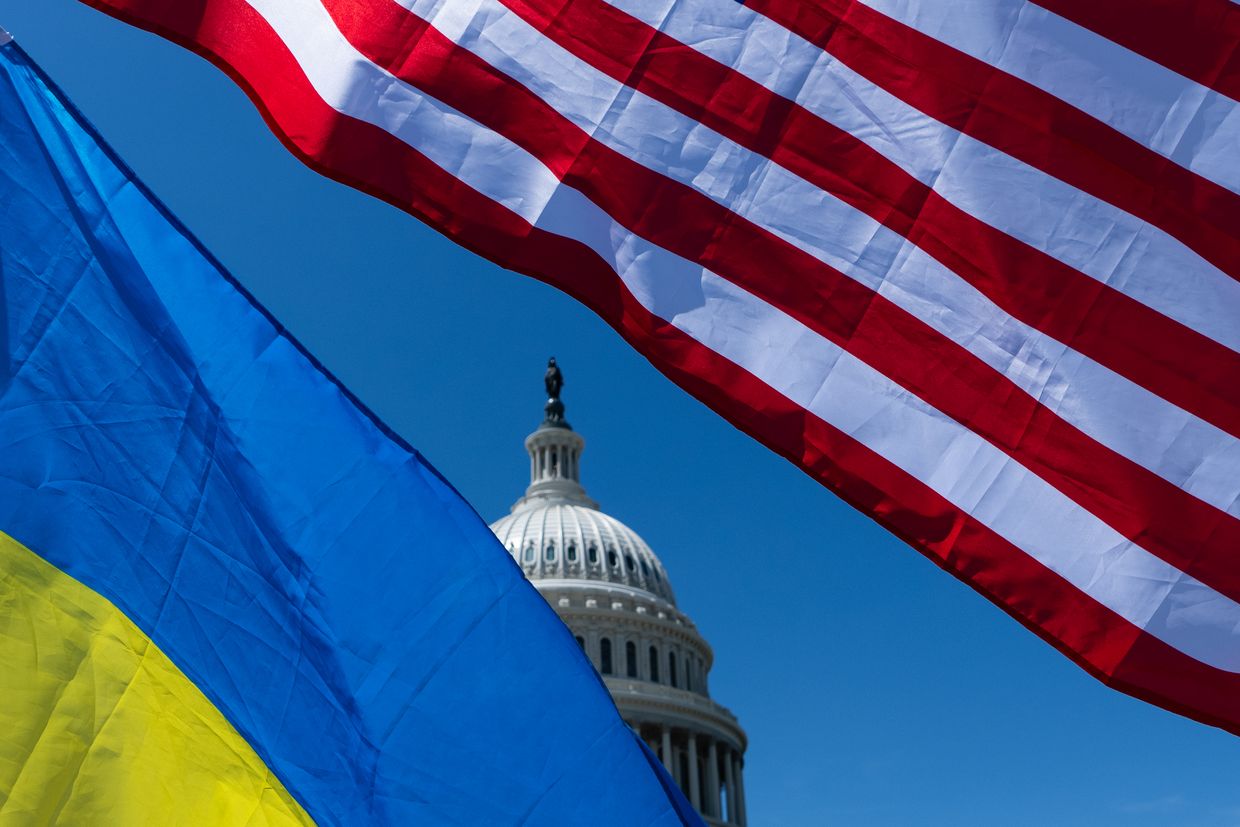

Around 50% of Americans support sanctions against countries that purchase Russian oil and gas, according to the results of a YouGov poll published on June 27.
A bipartisan sanctions bill in the U.S. Senate aims to slap 500% tariffs on imports from countries that continue to purchase Russian energy products. U.S. President Donald Trump has not backed the measure and a vote on the bill has reportedly been postponed.
In a YouGov survey of adult U.S. citizens conducted June 12-16, 24% said they "strongly support" sanctioning Russian energy buyers while 25% said they "somewhat support" secondary sanctions against these countries.
Like the Senate bill, support for secondary sanctions among respondents was bipartisan. Of "strong supporters," 26% indentified as Democrats while 27% were Republicans.
More Republicans than Democrats said they favored the specific 500% tariff penalty proposed by legislators. While 29% of respondents who "strongly supported" the measure were Democrats, 41% were Republicans. Only 32% of survey respondents overall said they supported the 500% tariff.
The 500% tariff has been championed by Republican Senator Lindsey Graham, a Trump ally and co-author of the sanctions bill alongside Democrat Richard Blumenthal. Along with tariffs on countries purchasing Russian oil, the bill would also slap "bone-crushing" new sanctions against Russia, according to Graham.
A majority of Americans support increasing or maintaining U.S. sanctions against Russia, the survey found. Here the division along party lines is stark, with 59% of those in favor of increasing sanctions on Moscow identifying as Democrats and only 37% identifying as Republicans.
The poll also showed that about 50% of Americans oppose cutting military aid to Ukraine. According to YouGov, 26% of U.S. adults are in favor of increasing military aid while 23% believe Washington should maintain its current levels of support.
The results illustrate the contrast between the prevailing views of the American public and the policies of the Trump administration. Trump has repeatedly undercut the Senate sanctions bill, requesting delays to the vote and calling on lawmakers to weaken the proposed measures.
While Trump has at times threatened to impose new sanctions on Russia, he has never followed through on any of those threats and consistently shoots down domestic and international appeals to get tough on Moscow. At the recent G7 Summit in Canada, Trump reportedly insisted that sanctions would be at odds with U.S. business interests.
U.S. Defense Secretary Pete Hegseth also announced earlier this month that Washington will cut military aid to Ukraine in its upcoming defense budget.
 The Kyiv IndependentMartin Fornusek
The Kyiv IndependentMartin Fornusek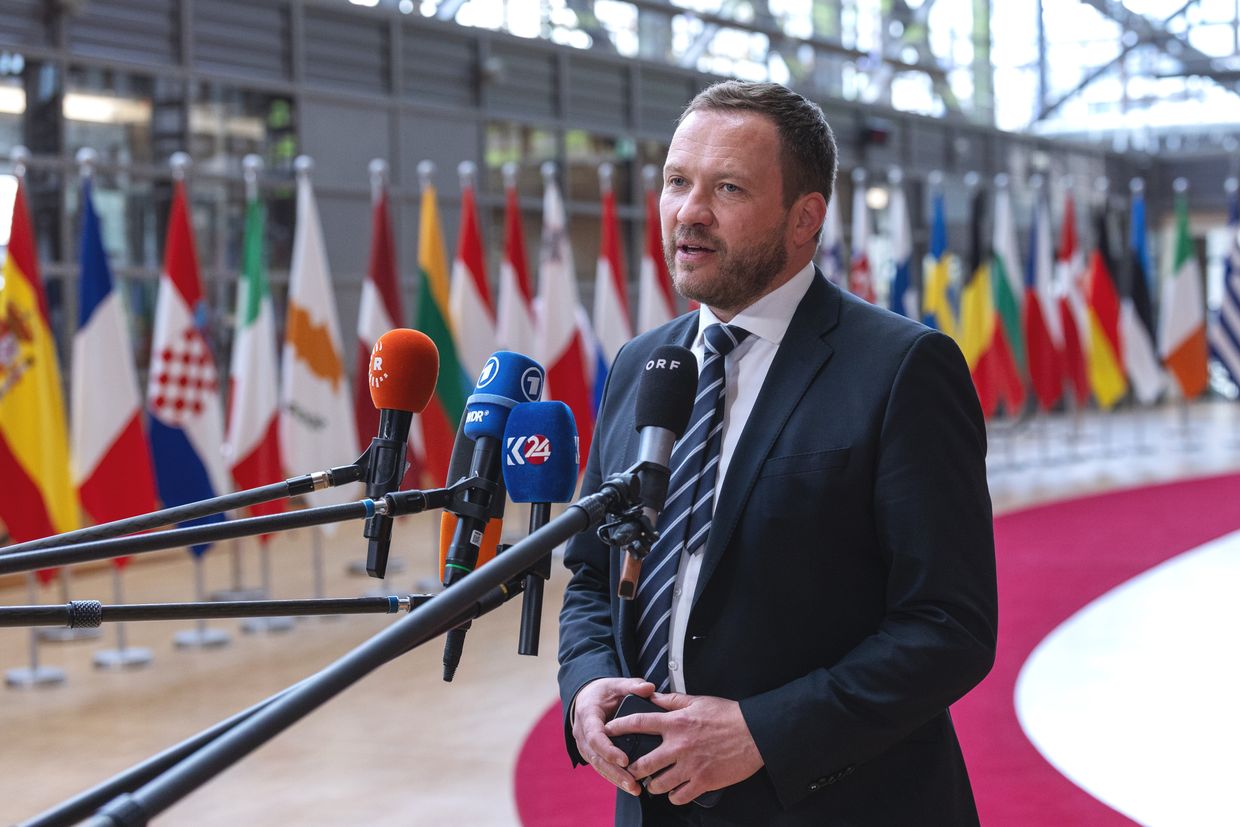
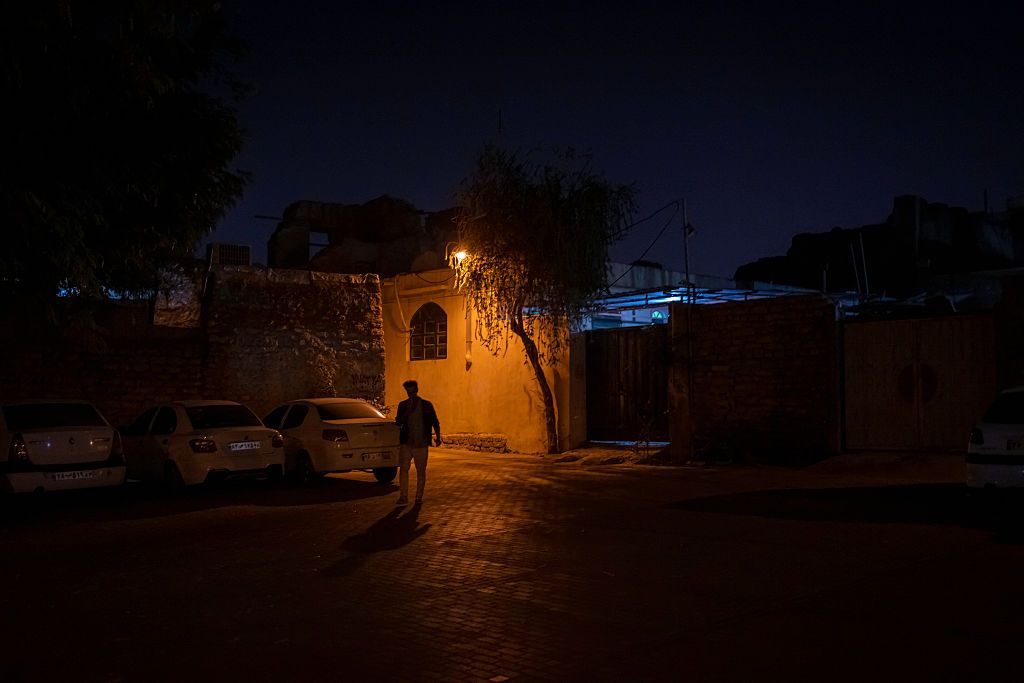

Iran has partially suspended production at the South Pars gas field — the world’s largest — after an Israeli airstrike triggered a fire at the site, the semi-official Tasnim news agency reported on June 14, according to Reuters. If confirmed, it would mark the first Israeli strike targeting Iran’s vital oil and gas infrastructure.
The South Pars field, located offshore in southern Bushehr province, is responsible for the bulk of Iran’s gas output. Tehran shares the field with Qatar, which refers to its portion as the North Field. A strike on South Pars represents a significant escalation, coming after oil prices surged 9% on June 13 following Israel’s initial wave of attacks, which had not targeted energy infrastructure, Reuters reports.
Israel launched its air offensive against Iran on June 13, killing commanders and scientists and bombing nuclear sites, in what it described as an effort to prevent Tehran from developing nuclear weapons.
The Iranian oil ministry said the fire caused by the strike has been extinguished. According to Tasnim, the fire broke out in one of four units of Phase 14 at South Pars, halting the production of 12 million cubic meters of gas.
Iran, the world’s third-largest gas producer after the United States and Russia, produces around 275 billion cubic meters of gas per year, about 6.5% of global output.
Due to international sanctions, the country consumes most of this domestically. Qatar, which operates the majority of the shared field with support from global firms such as Exxon and Shell, produces 77 million tonnes of liquefied natural gas annually, supplying both European and Asian markets.
 The Kyiv IndependentChris York
The Kyiv IndependentChris York